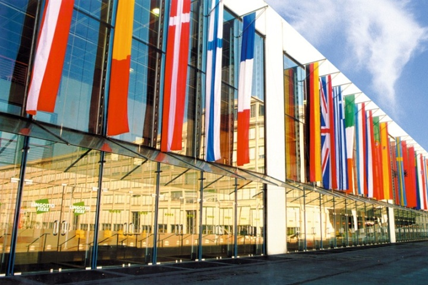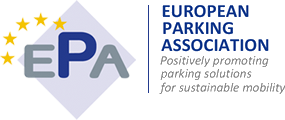EPA

The European Parking Association, with the national Associations of the 24 country members, represents the industrial sector of European parking.
The European Parking Association dedicates its activity to informing public and private authorities that efficient parking management generates
opportunities and not problems for politicians, decision makers, planners and citizens.
Integrated Urban Parking Management
Parking does not simply concern the indistinct needs of private vehicles to stop in the central areas, but the complex management for both multiple use and predetermined time periods of a range of parking and loading and unloading spaces for vehicles in the city, both on-street and in structures, in order to satisfy the needs of visitors, residents, businesses and services, delivery goods, special categories etc.
...Accessibility in the broadest sense is crucial to the economic well-being...
Furthermore it relates to the regulation of the demand for those people who have motivated needs to access the central parts of the urban centers ensuring accessibility and consequently increasing the environmental and economic values of the areas. An integrated management of the mobility system is one of the critical issues for ensuring the functional operations of urban living essential to its survival, which include working and recreation, for residents and visitors. Accessibility in the broadest sense is crucial to the economic well-being and continuation of traditional urban life and parking policies and its management play a key role in this context.
Urban performance, recalling the notion of competiveness, depends not only on the provision of physical infrastructures but also, and increasingly so, on the availability and quality of knowledge communication and social and intellectual capital. With the backdrop of city automation, the parking sector with the fast moving examples of the digitalization and the developments in information and payment communication technology, together with the current integrated management techniques, is enabling urban parking systems to provide a better mobility experience to cities inhabitants and users whilst making more efficient use of its resources and improving urban performance.
...efficient integrated parking systems can contribute to a sustainable balancing of the modal split and improvement of urban living...
In the last ten to fifteen years many European cities have outlined strategies to improve the functional organization of their central urban areas. The notion that efficient integrated parking systems can contribute to a sustainable balancing of the modal split and to the improvement of the quality of urban living has begun to be perceived and appreciated. The essential results being:
o optimizing of the on and off street parking supplies
o increasing the use of public or alternative transport systems
o optimizing urban public spaces and the implementation of pedestrian areas
o promoting new sustainable transport modes
o introducing sustainable environmental solutions reducing parking search traffic
o building and transforming parking infrastructures using the project financing instruments
o intensifying and consolidating commercial and touristic activities
o increasing real estate values
o making availabie real time information for planning and city users
o improving the overall quality and accessibility of urban centers
Mobility systems contemplating integrated parking solutions based on a scientific approach and not on emotional reactions can contribute to the success of urban renewal or upgrading schemes reducing congestion, increasing available public space whilst at the same time ensuring sustainable accessibility.
